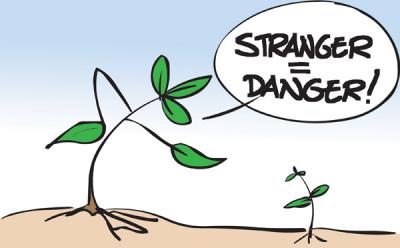Next to the threat of a nation on the verge of losing its capacity to get horrified even in the face of ‘horrors’ committed by successive governments comes the threat of disunity among fragmented political parties. Yet, the vibrancy of a democratic set-up can hardly be divorced from the strength and cohesion of Opposition parties on the infrastructure of our political system. ?The emergence of a political landscape littered, as never before, with 5 Opposition parties and 2 Independent members – until yesterday divided, resource-poor and hardly seeing eye-to-eye with one another – is enough to make us sit up and take notice. Luckily, it has now dawned upon the opposition that such a disparate group can hardly expect to drum up support on major issues of national interest: that it is better to stand together and point to the future instead of standing apart and pointing at one another. ?The Opposition’s function entails exactly what its name suggests: the Opposition opposes government legislations and ideally offers alternatives. While it is not in power, its duty is to oppose those who are. By asking the right questions, it eventually succeeds in a more consensual legislative outcome. That constitutes the basic fulcrum on which democracy functions, and goes to the heart of democratic theory. ?The current political situation would have been any Opposition’s delight, with no breathing space given to the government. Thanks to the rot triggered by the past and present governments, a meat axe is needed, instead of a scalpel, to clean the filth permeating almost each and every segment: the political arena has for far too long been a prime territory to exploit, as it offers a gravy-train of public funds and allows politicians of all stripes to dish out favours to self, to political cronies as well as to near and dear ones.
The multiple hard lessons conveyed by our politicians are their ability to speak from both sides of their mouths, and their skill to aptly and happily erode all confidence in the institutions of our national life. They foxily centre their pre-election campaign around buttering the crowd to rapturous applause, promising to ‘drain the swamp.’ Eventually, all major parties only succeed in bringing in a new lower set of standards, with their political cronies bent upon making bad governance their prime virtue. Finally, the much promised ‘happy days’ always remain a bridge too far because it is apparent our major political parties are all essentially branches of the same hardened tree, with their intestines tightly intertwined.?Against such a backdrop, with hopes hitting rock bottom and eyebrows continuously arching, the population deserves, desires and demands that the Opposition parties make maximum concerted use of the ammunitions generously provided by government and not for self-mutilation through mutual insults, haggles, and jostles. Such quarrels both confuse the electorate and profoundly undermine long-term credibility of the Opposition. Luckily, Mr. Ganoo’s constant plea for a united Opposition front is beginning to see the light of day. He has been reminding them that the explosive is not in the fuse but in the mind, and that one can be strong while keeping one’s calm and refrain from trading venomous remarks.?A strong government does not necessarily imply a weak Opposition, and a weak Opposition does not necessarily mean a strong government, as any Opposition may be strong or weak independent of government strength. The present weak-kneed Opposition can ill-afford internal bickerings in the face of a government awash with numbers and resources.?However, through a united and determined common front, the Opposition parties can weaken the government, challenge it, and do justice to the time-honoured negotiating tenet that ‘before you make war, make sure your enemy is weak, and before making peace, make sure your adversary is strong.’?Before the last parliamentary session, the Opposition’s unpredictability had seemed to be their most predictable characteristic. If that were to continue, it would be bound to provoke voter apathy, resulting in low voter turn-out and high absenteeism which could have benefitted an otherwise viable and vibrant Opposition because Mauritius has a history of voters voting with their feet. Today, rationality plays a preponderant role in determining voting preferences, as opposed to blind party identification and loyalty.?When weak and fragmented Opposition parties fail to live up to expectations, it renders it imperative for citizens, for relevance sake, to join interest-based civic organisations which may even overshadow a weak and divided Opposition, and eventually evolve into a political party. Additionally, when weak Opposition parties stand on slippery ground, they get tempted, by way of defense mechanism, to resort to dramatic and inflammatory language which the government then makes use of to further marginalise them on the ground that divided and pathetic Opposition parties offer little hope for viable political change. ?If for nothing else the Opposition should, at least for the sake of upholding democratic values and principles in the best interest of the nation, need to continue to shed their internal schoolyard bickerings and force the government to be constantly on its mental toes.?That is what democracy boils down to!
MAURITIAN OPPOSITION PARTIES : The Struggle Within the Struggle
- Publicité -
EN CONTINU ↻


